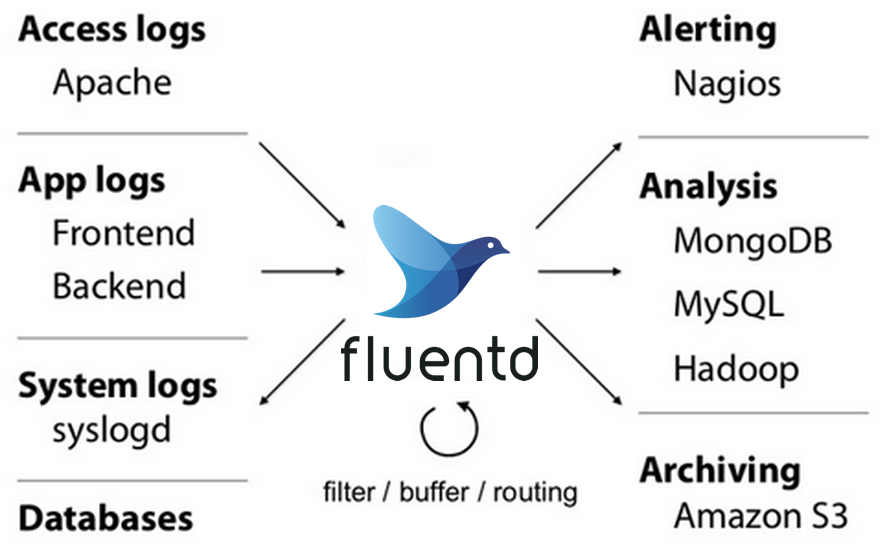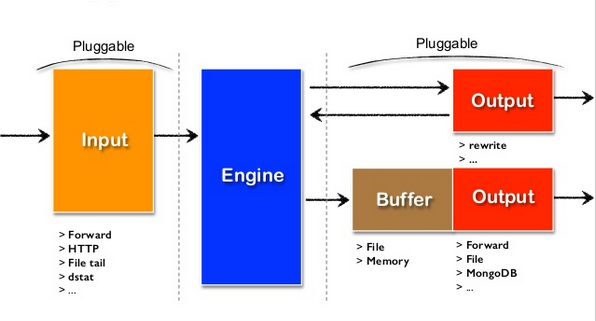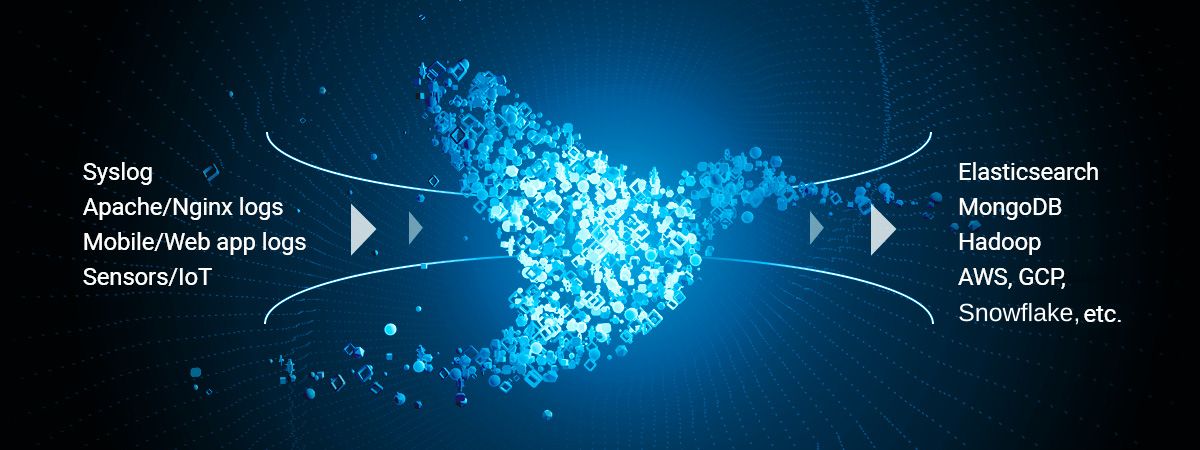Fluentd
Contents
Fluentd¶
Build Your Unified Logging Layer¶
Fluentd is an open source data collector for unified logging layer.¶
Fluentd allows you to unify data collection and consumption for a better use and understanding of data.¶
Unified Logging Layer¶
Fluentd decouples data sources from backend systems by providing a unified logging layer in between.

Simple yet Flexible¶
Fluentd’s 500+ plugins connect it to many data sources and outputs while keeping its core simple.
Plugins are written in Ruby and hosted in rubygems
Proven¶
5,000+ data-driven companies rely on Fluentd. Its largest user currently collects logs from 50,000+ servers. Testimonials

Log data is for machines¶
 https://www.fluentd.org/blog/unified-logging-layer
https://www.fluentd.org/blog/unified-logging-layer
Architecture¶

Life of a fluentd event¶
Event Structure¶
tag: Specifies the origin where an event comes from. It is used for message routing.
time: Specifies the time when an event happens with nanosecond resolution.
record: Specifies the actual log as a JSON object.

https://livebook.manning.com/book/logging-in-action/chapter-2/v-10/14
Configuration File¶
The configuration file is the fundamental piece to connect all things together, as it allows to define which Inputs or listeners Fluentd will have and set up common matching rules to route the Event data to a specific Output.
<source>
@type http
port 44444
bind 0.0.0.0
</source>
# accept all log events regardless of tag and write them to the console
<match **>
@type stdout
</match>
docker run -p 44444:44444 -v $(pwd)/conf:/fluentd/etc fluent/fluentd:edge-debian -c /fluentd/etc/helloworld.conf
curl -X POST -d 'json={"json":"message"}' http://127.0.0.1:44444/sample.test
Processing Events¶
When a Setup is defined, the Router Engine contains several predefined rules to apply to different input data. Internally, an Event will to pass through a chain of procedures that may alter its lifecycle.
Plugin types¶
Fluentd has nine (9) types of plugins:
Input
Parser
Filter
Output
Formatter
Storage
Service Discovery
Buffer
Metrics
https://docs.fluentd.org/input


